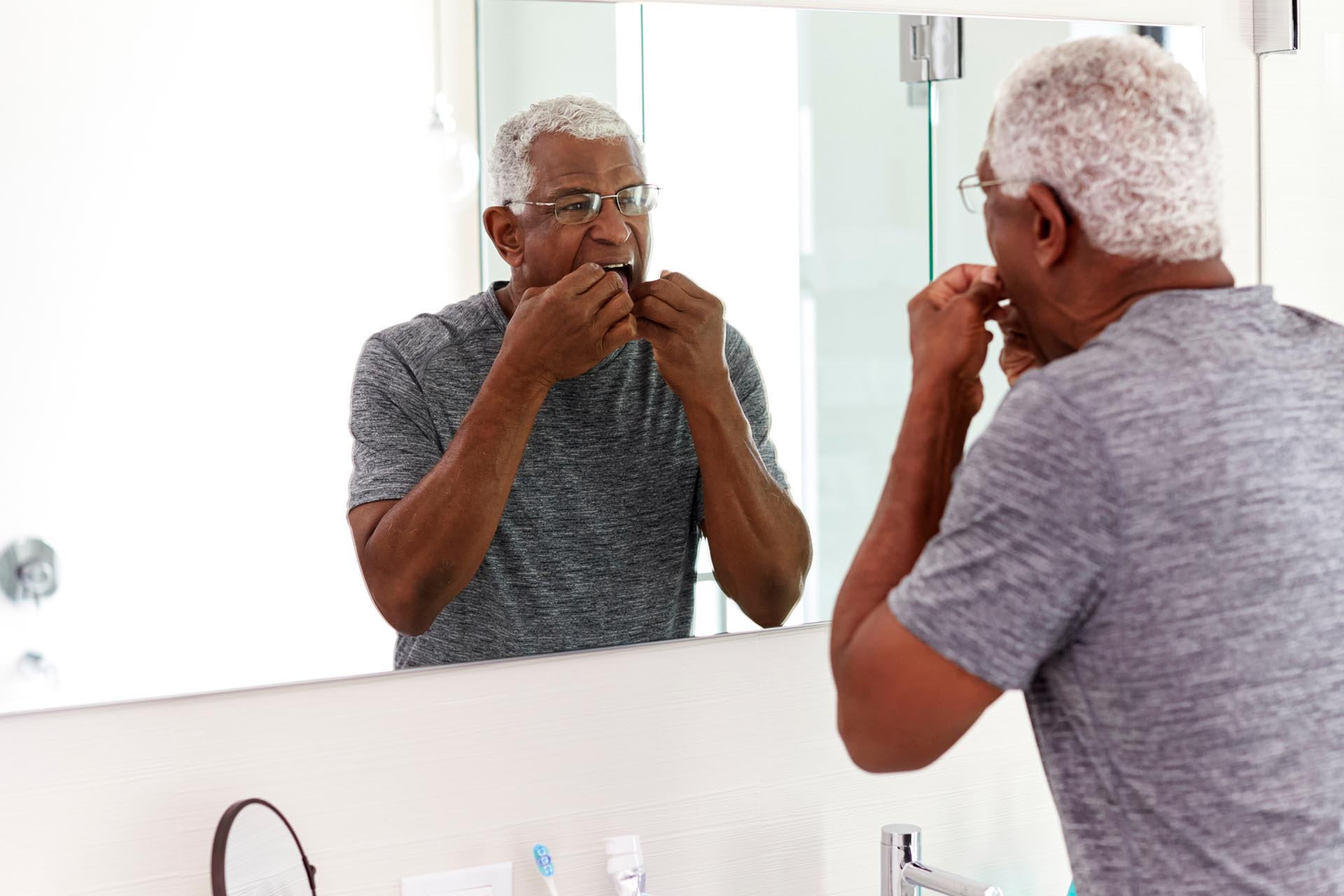hanks to dental implants, tooth loss is no longer the significant problem it used to be. Multiple options are available to preserve your oral health and restore your beautiful smile. However, much like your regular teeth, implants require a lot of care to ensure their longevity. Improperly caring for implants can lead to further damage to your teeth and the proliferation of bacteria and infections. These conditions will inevitably cause implant failure, defeating the purpose of the implants and causing the need for further procedures to fix the damage. Dr. Kesecker and the team at Legacy Surgery understand that patients play as vital a role in the success of their implants as doctors do. It starts with knowing the proper care for implants and what to do to prevent further oral health issues.
What Are Dental Implants?
Dental implants are replacement teeth attached to the gums at the root through surgery. Implanting them creates a strong foundation that allows you to continue with the same activities you would’ve enjoyed with natural teeth. Since dental implants are matched to your natural teeth, they go completely undetected.
Tips For Taking Care Of Dental Implants
Although implants are artificial teeth, they are still attached to your jaw such that they can be affected by bacteria. Therefore, it’s necessary to keep clean dental implants and take a similar approach to oral care that you would take with your natural teeth.
Brushing and Flossing
Good oral hygiene is key to maintaining your dental implant’s function along with the rest of your teeth. You should take special care to floss around the base of your implant to remove any food particles that may accumulate there and cause periodontal disease.
Of course, to effectively care for your implants, you will require the appropriate tools for the job. First, use a soft-bristled toothbrush that is long enough to reach the back of your mouth. Your general dentist can help you decide if a manual or electric toothbrush is best for you. Twice a day, thoroughly brush each quadrant of your mouth for 30 seconds each for a total of 2 minutes. Second, be sure to floss daily. If you have trouble with traditional dental floss, use an interdental brushes instead or water picks instead.
You should also replace your toothbrush every three months or so. The bristles can become worn and even fall out after heavy use. Missing bristles or bristles that are too soft won’t be able to remove bacteria and prevent plaque buildup in certain areas effectively. In addition, bacteria can accumulate on your toothbrush both from your mouth and the environment around the brush.
Avoiding Damage
While dental implant restorations are sturdy and made to last, that doesn’t mean that they are indestructible. It would be best to be cautious about eating hard foods that could chip or break your implants. Likewise, excessively sugary or acidic foods can damage implants and lead to gum disease. And be aware of any habits you might have that could also cause damage, such as nail-biting, chewing on pens, or opening packages with your teeth.
Drink Plenty of Water
Staying hydrated has numerous benefits for your overall health. However, one overlooked benefit is the positive effect that it can have on your oral health. The most significant benefit drinking water has for your oral health is increased saliva production. One of the main functions of saliva is to wash away excess food and bacteria and neutralize acids that bacteria can produce.
No Smoking
Smoking has negative impacts on your health that are well documented. Tobacco products cause gum disease and weaken your immune system, and they are also detrimental to your body’s natural healing process. Most patients take about six months to heal fully from dental implant surgery, and smoking will only delay the process
While you may be able to take excellent care of your teeth, your dentist has the tools and expertise necessary to care for your implants and prevent problems that you may not realize are there. In addition, your dentist can help maintain both your implants and your natural teeth and make any adjustments you may require during regular visits.
Let The Professionals At Legacy Surgery Help With Your Dental Implant Needs
Tooth loss due to decay or injury doesn’t have to impact your life negatively. Instead, turn to the best dental implant surgeons in the Harrisonburg, VA area at Legacy Surgery. As a board-certified Oral and Maxillofacial surgeon, Dr. Jeffery Kesecker has the expertise needed to ensure the best results for a successful implant.
If you’re looking to improve your oral health, get in touch with us today.

